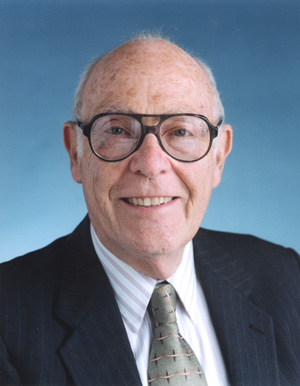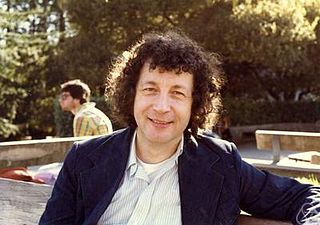
Edward Baldwin Curtis (born 13 March 1933 in Newburyport, Massachusetts, died 2 April 2024 in Seattle, Washington [1] ) was an American mathematician.

Edward Baldwin Curtis (born 13 March 1933 in Newburyport, Massachusetts, died 2 April 2024 in Seattle, Washington [1] ) was an American mathematician.
Edward Curtis received his bachelor's degree from Harvard University in 1954. After graduate study from 1958 to 1959 at the University of Oxford, he returned to Harvard and earned a Ph.D. there in 1962. His thesis The Lower Central Series for Free Group Complexes was supervised by Raoul Bott. Curtis became an instructor at the Massachusetts Institute of Technology (1962–1964), assistant professor (1964–1967), and associate professor (1967–1970). In 1970 he became a professor at the University of Washington in Seattle, where he remained until his retirement as professor emeritus.
His research interests included graph theory and flow networks. In 1967 for his studies on algebraic topology he received a Guggenheim Fellowship [2] [3] and in 1972 the Leroy P. Steele Prize for his paper Simplicial homotopy theory. [4]
{{cite book}}: CS1 maint: location missing publisher (link)
Elias Menachem Stein was an American mathematician who was a leading figure in the field of harmonic analysis. He was the Albert Baldwin Dod Professor of Mathematics, Emeritus, at Princeton University, where he was a faculty member from 1963 until his death in 2018.
Daniel Gray Quillen was an American mathematician. He is known for being the "prime architect" of higher algebraic K-theory, for which he was awarded the Cole Prize in 1975 and the Fields Medal in 1978.

Andrew Eben Strominger is an American theoretical physicist who is the director of Harvard's Center for the Fundamental Laws of Nature. He has made significant contributions to quantum gravity and string theory. These include his work on Calabi–Yau compactification and topology change in string theory, and on the stringy origin of black hole entropy. He is a senior fellow at the Society of Fellows, and is the Gwill E. York Professor of Physics.

Erik D. Demaine is a Canadian-American professor of computer science at the Massachusetts Institute of Technology and a former child prodigy.

Henry Nelson Goodman was an American philosopher, known for his work on counterfactuals, mereology, the problem of induction, irrealism, and aesthetics.

Michael Artin is a German-American mathematician and a professor emeritus in the Massachusetts Institute of Technology Mathematics Department, known for his contributions to algebraic geometry.
Daniel Marinus Kan was a Dutch mathematician working in category theory and homotopy theory. He was a prolific contributor to both fields for six decades, having authored or coauthored several dozen research papers and monographs.

John Werner Cahn was an American scientist and recipient of the 1998 National Medal of Science. Born in Cologne, Weimar Germany, he was a professor in the department of metallurgy at the Massachusetts Institute of Technology (MIT) from 1964 to 1978. From 1977, he held a position at the National Institute of Standards and Technology. Cahn had a profound influence on the course of materials research during his career. One of the foremost authorities on thermodynamics, Cahn applied the basic laws of thermodynamics to describe and predict a wide range of physical phenomena.
Tudor Ganea was a Romanian-American mathematician, known for his work in algebraic topology, especially homotopy theory. Ganea left Communist Romania to settle in the United States in the early 1960s. He taught at the University of Washington.
Victor William Guillemin is an American mathematician. He works at the Massachusetts Institute of Technology in the field of symplectic geometry, and he has also made contributions to the fields of microlocal analysis, spectral theory, and mathematical physics.
Steven Lawrence Kleiman is an American mathematician.

Jacob Alexander Lurie is an American mathematician who is a professor at the Institute for Advanced Study. In 2014, Lurie received a MacArthur Fellowship.
Robert Dorfman was professor of political economy at Harvard University. Dorfman made great contributions to the fields of economics, statistics, group testing and in the process of coding theory.
Drew Fudenberg is a Professor of Economics at MIT. His extensive research spans many aspects of game theory, including equilibrium theory, learning in games, evolutionary game theory, and many applications to other fields. Fudenberg was also one of the first to apply game theoretic analysis in industrial organization, bargaining theory, and contract theory. He has also authored papers on repeated games, reputation effects, and behavioral economics.

John Lewis Rhodes is a mathematician known for work in the theory of semigroups, finite state automata, and algebraic approaches to differential equations.
Haynes Robert Miller is an American mathematician specializing in algebraic topology.
John Frederick "Rick" Jardine is a Canadian mathematician working in the fields of homotopy theory, category theory, and number theory.

The Princeton University Department of Mathematics is an academic department at Princeton University. Founded in 1760, the department has trained some of the world's most renowned and internationally recognized scholars of mathematics. Notable individuals affiliated with the department include John Nash, former faculty member and winner of the 1994 Nobel Memorial Prize in Economic Sciences; Alan Turing, who received his doctorate from the department; and Albert Einstein who frequently gave lectures at Princeton and had an office in the building. Fields Medalists associated with the department include Manjul Bhargava, Charles Fefferman, Gerd Faltings, Michael Freedman, Elon Lindenstrauss, Andrei Okounkov, Terence Tao, William Thurston, Akshay Venkatesh, and Edward Witten. Many other Princeton mathematicians are noteworthy, including Ralph Fox, Donald C. Spencer, John R. Stallings, Norman Steenrod, John Tate, John Tukey, Arthur Wightman, and Andrew Wiles.
Julianna Sophia Tymoczko is an American mathematician whose research connects algebraic geometry and algebraic combinatorics, including representation theory, Schubert calculus, equivariant cohomology, and Hessenberg varieties. She is a professor of mathematics at Smith College.
Charles Waldo Rezk is an American mathematician, specializing in algebraic topology and category theory.